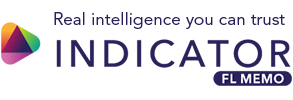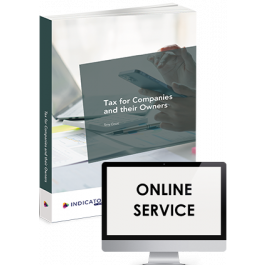Tax for Companies and their Owners
A Tips & Advice book about...
In a nutshell
Tax planning and compliance play a vital part in managing a company and the income that its directors and shareholders are able to take from it. This book considers the tax and NI consequences for companies and their owners of extracting income safely and tax efficiently from the business.
In detail
The first two parts look in detail at the methods open to company directors and shareholders for taking income. They examine the general pros and cons, practicalities and overall tax efficiency of each method. They compare how and when each method can be used to maximise after-tax income.
The next part explains the tax and NI rules that apply to expenses paid by companies for and on behalf of their owner managers. It looks at HMRC’s view of expenses payments and how to avoid disputes and dodge traps.
The last part of the book considers other transactions that involve companies and their shareholders, such as directors' loan accounts, selling or winding up a company and inheritance tax issues. It looks at the practical issues, tax planning ideas and possible pitfalls.
The topics covered include:
- Salary and benefits v dividends
- Company cars and other benefits in kind
- Tax and NI-free perks
- Borrowing from and lending to a company
- Income shifting to a spouse or civil partner
- Pension savings
- Closing down a company
- Income tax-exempt expenses
- Using your home for work
- Travelling for business
- Staff and customer entertaining
- Reporting and managing expenses and benefits
We've created this Tips & Advice book especially for...
Company owner managers
- looking for tax and NI-efficient profit extraction strategies that can be tailored to their circumstances, plus those that advise them.
You'll get the following free extras with this Tips & Advice book...
An online service with ready-to-use documents
- To immediately apply our advice and solutions in practice
- That you can easily adapt to suit your own requirements
In this Tips & Advice Book you'll read about...
Part 1 - Basic rules for taxing salary, benefits and dividends
1. Directors, shareholders and their companies
1.1. Introduction
1.2. How are directors taxed on their remuneration?
1.3. How does directors’ remuneration affect the company’s tax position?
1.4. How are shareholders taxed on company distributions?
1.5. How do distributions affect tax paid by companies?
2. Overview of tax and NI on directors’ income
2.1. Basic rules - income tax rates and allowances
2.2. Basic rules - NI rates and thresholds
2.3. How are salaries and other cash earnings taxed?
2.4. How are dividends taxed?
2.5. How are benefits in kind taxed?
2.6. Overview of PAYE system
3. Maximising tax and NI efficiency
3.1. The basics of tax planning for directors and director shareholders
3.2. Tax and NI efficient low salaries
3.3. Tax and NI on higher salaries
3.4. Sharing company income with your partner
Part 2 - Taxation of specific benefits in kind
1. Tax efficiency and HMRC reporting of benefits
1.1. How tax efficient are benefits compared with salary or dividends?
1.2. When are benefits more tax efficient than dividends?
1.3. In what circumstances are benefits less tax efficient than dividends?
1.4. What counts as a benefit in kind?
1.5. Are there any special rules for NI payable on benefits?
1.6. How are benefits reported for tax purposes?
2. Tax and NI exempt benefits
2.1. Mobile phones
2.2. Workplace parking
2.3. Company-provided equipment for homeworking
2.4. Bikes and the cycle to work scheme
2.5. Company paid-for meals (other than while travelling on business)
2.6. Electric vehicle charging
2.7. Trivial benefits
2.8. Minor benefits - welfare counselling and pensions advice
2.9. Eye tests and spectacles
2.10. Medical check-ups and treatment
2.11. Recreational and sporting facilities
2.12. Relocation costs
3. Taxable benefits
3.1. Company loans to a director
4. Residual liability rules
4.1. Company pays directors’ personal liabilities for goods
5. Company cars
5.1. What is the best car for tax efficiency?
5.2. Company vans
6. Company-provided assets
6.1. Selling assets for less than market value
Part 3 - Expenses
1. Expenses and their tax treatment
1.1. What are the general tax rules for job-related expenses?
1.2. Are there different tax rules for some job expenses?
1.3. How are job-related expenses paid by your company treated for tax and NI purposes?
1.4. How are job expenses paid personally treated for tax and NI purposes?
1.5. Is it more or less tax efficient to claim reimbursement of an expense?
2. Reimbursing expenses
2.1. Claiming reimbursement
3. Expenses subject to special tax rules
3.1. General rules for travel and travel-related expenses
3.2. Mileage allowance
3.3. Tax-exempt ordinary commuting costs
3.4. UK and overseas subsistence and accommodation
3.5. Overseas travel and subsistence
3.6. Hotels and other accommodation
3.7. Business entertainment costs
3.8. Homeworking expenses
3.9. Equipment used for work
3.10. Other expenses and record keeping requirements
Part 4 - Taxation of other transactions
1. Directors’ loan accounts
1.1. What’s a director’s or shareholder’s loan account?
2. Pension savings
2.1. Registered pension scheme savings
2.2. Using pension savings for your company
3. Restructuring shareholdings
3.1. Introduction
3.2. Share buy-back
4. Inheritance tax (IHT) and company shares
4.1. Business property relief
4.2. Planning points for your will
5. Selling your company or business
5.1. Tax on the sale of a company
5.2. Tax warranties and indemnities
5.3. BADR application and conditions
6. Year-end planning for directors
6.1. Why is timing important?
6.2. Key dates for your company
6.3. Corporation tax deductions
7. Winding up your company
7.1. The director’s perspective
7.2. Capital distribution
7.3. Availability of BADR
7.4. Pre-winding up dividend
7.5. Phoenix companies
8. IR35 and off-payroll
8.1. What are the IR35 and off-payroll rules?
8.2. Tax and work done outside the UK
8.3. NI and work done outside the UK
Part 5 - Appendices
1. Appendix A - UK tax rates
2. Appendix B - Car benefit rates
2.1. Cars registered before 6 April 2020
2.2. Cars registered on or after 6 April 2020
3. Appendix C - Private travel and ordinary commuting
4. Appendix D - Tax treatment of motoring fines and charges
5. Appendix E - Definitions relating to directors’ loan accounts
Special subscribers' offer
£100.00
£80.00
Only if you already have a subscriptionStandard offer
£100.00

Got a question? Call Customer Services
(01233) 653500


 (01233) 653500
(01233) 653500 







